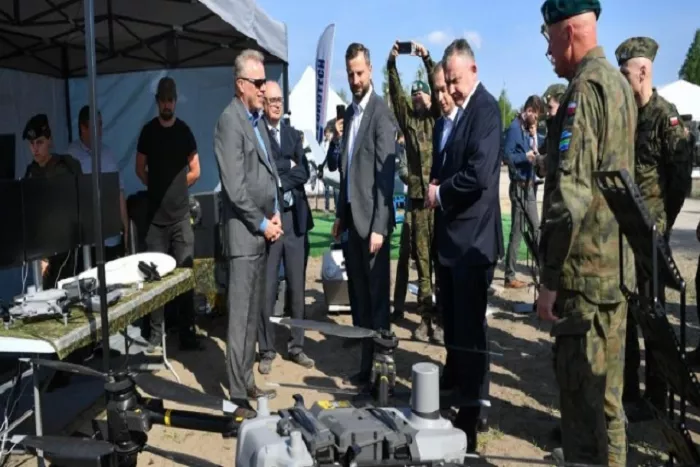Poland has unveiled plans to establish a new “drone army” as part of its broader strategy to modernize its military and enhance national defense capabilities. The announcement was made by Deputy Prime Minister and Minister of National Defense, Władysław Kosiniak-Kamysz, during his visit to the 1st Warsaw Armored Brigade in Warsaw-Wesola. The minister, accompanied by senior officials and military leaders, described the drone initiative as one of the most significant developments in the history of the Polish Army.
“There will be no safe Poland without an army of drones: those that fly, move on water, under water, and on land,” Kosiniak-Kamysz said. “In all domains, in all units, every soldier of the Polish Army will interact with drones. This is our ambition. This is our goal.”
As part of the new initiative, the Unmanned Weapons Systems Component (BSU) began operations on January 1, 2025, under the leadership of Brig. Gen. Mirosław Bodnar. The effort also includes a dedicated Inspectorate of Unmanned Weapons Systems within the General Command of the Armed Forces.
At a recent event, the Ministry of National Defense hosted around 40 Polish companies that design and manufacture unmanned systems. The gathering, which included defense officials, military personnel, and private sector representatives, featured both static and live demonstrations of tactical drone systems used for surveillance, strike missions, kamikaze attacks, and reconnaissance.
Kosiniak-Kamysz highlighted the significance of these demonstrations, stating, “For the first time in the history of our army, we invited all these companies. This is part of our grand strategy: building an army consisting of hundreds of thousands of drones with the ability to produce millions.”
The Polish government stressed the importance of self-reliance in technological innovation and production to support the drone initiative. The war in Ukraine has underscored the pivotal role of unmanned systems in modern warfare, and Polish officials are determined to maintain strong domestic supply chains.
Deputy Minister Cezary Tomczyk emphasized, “The trick is to buy wisely. If we do not develop the Polish arms industry, then at the moment of threat, we will find ourselves in a very difficult situation.”
Deputy Minister Paweł Bejda added that the new drone force would span all military branches and environments. “These drones concern all types of troops—everything that swims underwater, moves on water, drives on land, and flies,” he said.
To support the strategy, the Polish Armed Forces have started equipping units with 3D printers for designing and producing drones locally. Military personnel with expertise in unmanned systems are also forming specialized teams to develop, operate, and train with the new technologies.


